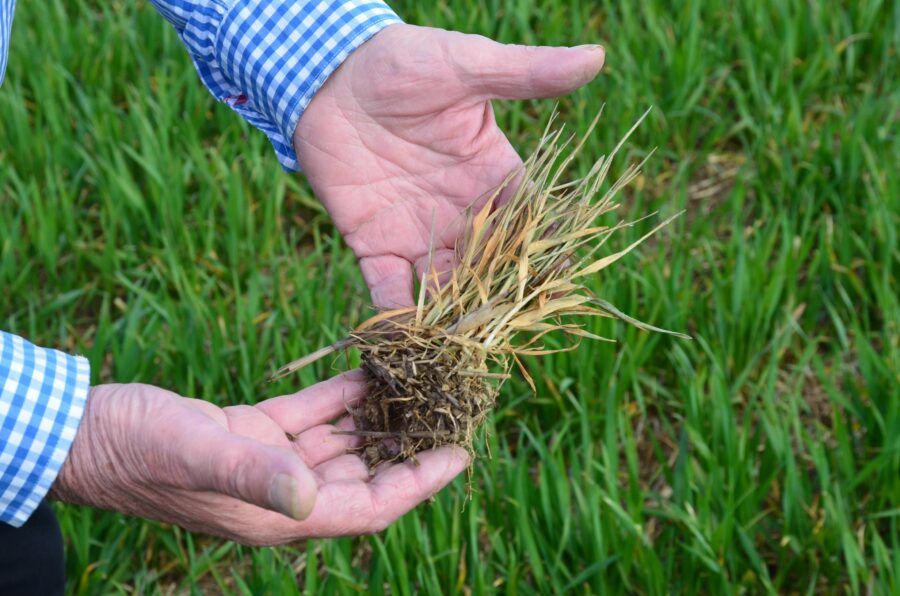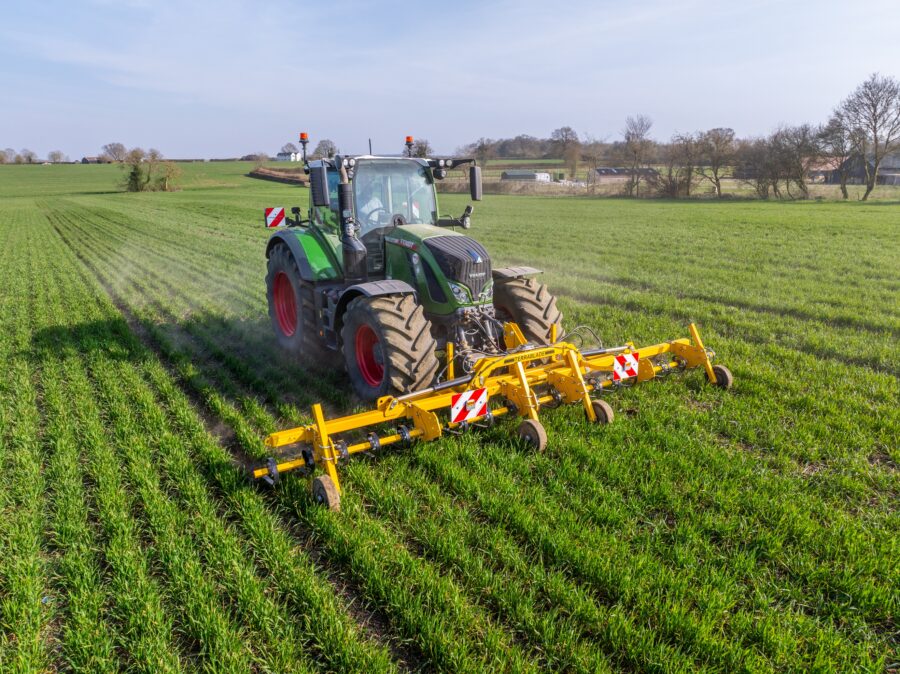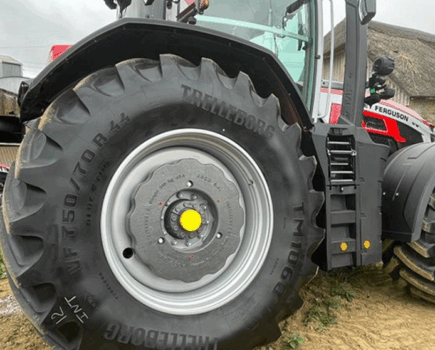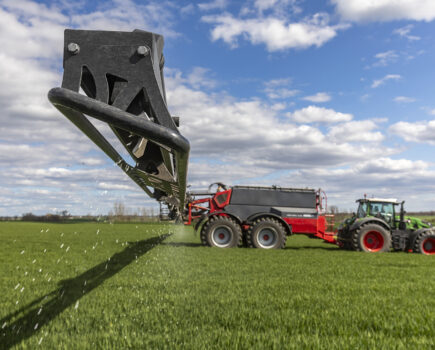Precision RTK guidance has transformed the speed, accuracy, ease and effectiveness of inter-row hoeing on an arable farm in Suffolk which operates the latest Fendt tractors with VarioGuide RTK. Accurate to +/-2cm, the system on the 942 Vario is used to direct drill cereal crops in bands with a 6m Claydon Evolution, while that on the 724 Vario guides a 6m Claydon TerraBlade which is steered automatically using the tractor’s front wheels.
“Our previous drill tractor had only basic RTK, so the TerraBlade had to be manually steered, which restricted forward speed but still reduced weed numbers by 65% -70%” says Jeff Claydon. “VarioGuide RTK takes inter-row hoeing to the next level and this season we used it on over 150ha, with higher output and improved weed control. Compared with cereals drilled on narrow/conventional row spacings the 17cm banded rows at 32cm centres provided plenty of tolerance and gave us peace of mind that the crop would not be damaged.”
With weeds becoming increasingly resistant to herbicides and little new chemistry on the horizon the TerraBlade provides a low-cost, mechanical method of controlling them in combinable, band-sown crops. It is popular with farmers wanting to operate more effectively and efficiently, while organic and regenerative farmers also use it to reduce weed burdens and costs. Keeping the area between the seeded bands clear of weeds during the early stages of crop growth reduces competition for nutrients, light, air and water, so young plants grow strong and healthy.
The relatively dry weather in early April provided ideal conditions for the TerraBlade. Operating 1cm to 2cm deep, the standard 150mm-wide scalping blades sliced through the soil removing weeds between the seeded bands but leaving the crop intact. Operating at up to 12km/h, depending on field and soil conditions, it averaged 6 – 7 ha/hr, almost double the previous figure, and caused no damage, even at Growth Stage 32. All cereal crops on the Claydon farm are virtually weed-free, and the shallow soil mulch created by the blades helped to retain moisture.
Trials by a major agronomy company on another farm where grassweeds had become problematic after years of conventional crop establishment measured over 900 blackgrass seeds heads/m2 in an untreated area. Where herbicides were used in combination with a Claydon Straw Harrow and a Claydon TerraBlade researchers recorded just 13/m2, a 98.5% reduction. This gave a yield increase worth £256/ha, which quickly covered the implement’s cost.
Designed to work in direct drilled cereal crops established using Claydon trailed and mounted direct drills, the TerraBlade costs approximately £2,000-£2,500 per metre, a fraction that of more complex hoes. Available in widths to match Claydon drills, the TerraBlade’s simple design means that there is little to maintain, it will give years of reliable service, and the low operating costs allow it to essentially pay for itself.
See the TerraBlade in action at https://claydondrill.com/video-gallery/terrablade-pin-point-accuracy/

For more like this, subscribe to the FREE Farm Machinery Buyer newsletter here and subscribe to Agricultural Trader and Farm Machinery here.





